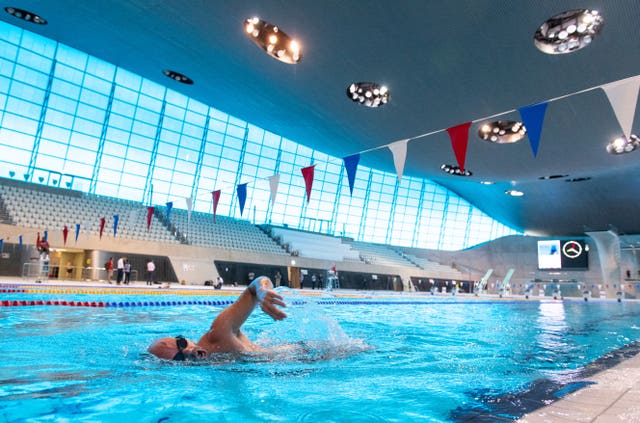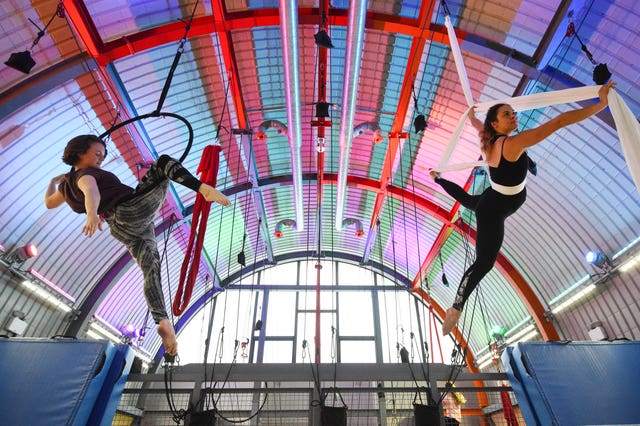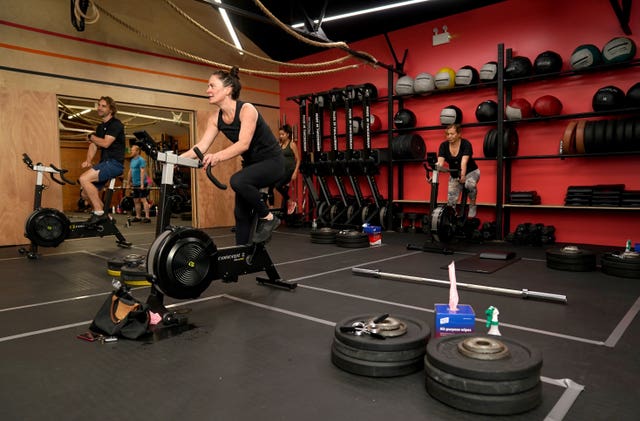Sports centres face uncertain future as Government vows to tackle obesity
Thousands of health and fitness facilities could be forced to close without financial support, industry bodies have warned.

The nation could be facing a collapse in its health and leisure infrastructure, the industry has warned, as pools and gyms were allowed to reopen their doors in the latest easing of lockdown measures.
Only around 20% of pools in England opened on Saturday, the head of the national governing body for swimming said, with thousands potentially shut for good unless the Government intervenes.
Jane Nickerson, chief executive of Swim England, said that even before Covid-19 struck 40% of the country’s ageing pool stock was facing closure before the end of the decade.
She said many local facilities have had no support at all over the last three months.
Ms Nickerson told Radio 4’s Today programme: “We know every single pool returns around £7.2 million in community benefits – in social cohesion, crime prevention, education attainment and health benefits.

“So a little bit of support now from the Government will have its payback within months.
“It is not like it’s asking for money that just gets thrown away – by tackling the health and obesity crisis in the pool, it actually saves a lot of money.”
She added: “One of our biggest, biggest fears is that there will be a lost generation of children this year who don’t learn to swim.”
Ms Nickerson’s fears are shared by Community Leisure UK, the association representing charitable leisure and culture trusts across England, Scotland and Wales.
It estimates as many as 1,300 public leisure facilities could disappear by the end of the year, along with more than 58,000 jobs.
Mark Sesnan, managing director of Greenwich Leisure Limited (GLL), the UK’s largest operator of non-profit public leisure facilities, estimated it would take three to four years to recover from the crisis.
GLL, which runs more than 250 sport and leisure facilities and libraries across the UK, had no help covering its non-staff costs during lockdown.
He told the PA news agency: “We’ve used our reserves to pay for that, but they’re running out and running out fast.
“So getting open is important, but actually running at half-capacity, as you can guess, is still not going to solve the problem.
“So it’s a long journey – it’s going to be two or three years before we can dig ourselves out of the financial hole.”

The gloomy predictions came as eager gym goers worked up a sweat on Saturday morning.
Fitness chain David Lloyd clubs opened its Hampton, Twickenham branch at exactly midnight on Saturday to hold what is believed to be the first post-lockdown indoor exercise class.
RAF veteran Mark Goody, who has a prosthetic leg, said being unable to swim during lockdown had impacted his mental health.
Speaking from the London Aquatic Centre, he told PA swimming had been a means of helping cope with the grief of losing his father last year.
“Not having an outlet for that frustration has been incredibly challenging and I’m really looking forward to thrashing up and down in a pool and beating some demons out of my head,” he said.
In Hexham, Northumberland, people were queuing from 8am to enter a gym and pool facility.
Resident Peter Topping told the PA news agency: “We were queuing outside for just a few minutes, and the staff briefed people while we were waiting. It was brilliant to be back, but hard work after four months off.”
On Friday, the Government revealed it is preparing plans to tackle obesity as part of its strategy to minimise the impact of future waves of Covid-19.
It said it would be revealing its strategy “very soon” after a Public Health England (PHE) review found a dramatic rise in the risk of hospitalisation and death from coronavirus in those who were obese.
It marks a U-turn for Boris Johnson, who until recently has been a vocal opponent of “sin taxes” and perceived “nannying” by the state.

He has admitted his own experience of Covid-19, which left him in an intensive care unit in April, convinced him of the need for change.
On Friday, the PM said he had lost more than a stone since his battle with Covid-19.
The PHE study concluded that people who are overweight – a body mass index (BMI) of 25 to 29.9 – have a higher risk of hospitalisation and poor outcomes if they catch coronavirus.
Experts also discovered that having a BMI of 35 to 40 increases the risk of death from coronavirus by 40%, while a BMI over 40 almost doubles the risk compared to people who are a healthy weight.
The report said being overweight or obese increases the chance somebody will end up critically ill in intensive care, with 7.9% of critically ill patients with Covid-19 in intensive care units having a BMI over 40 compared with 2.9% of the general population.





